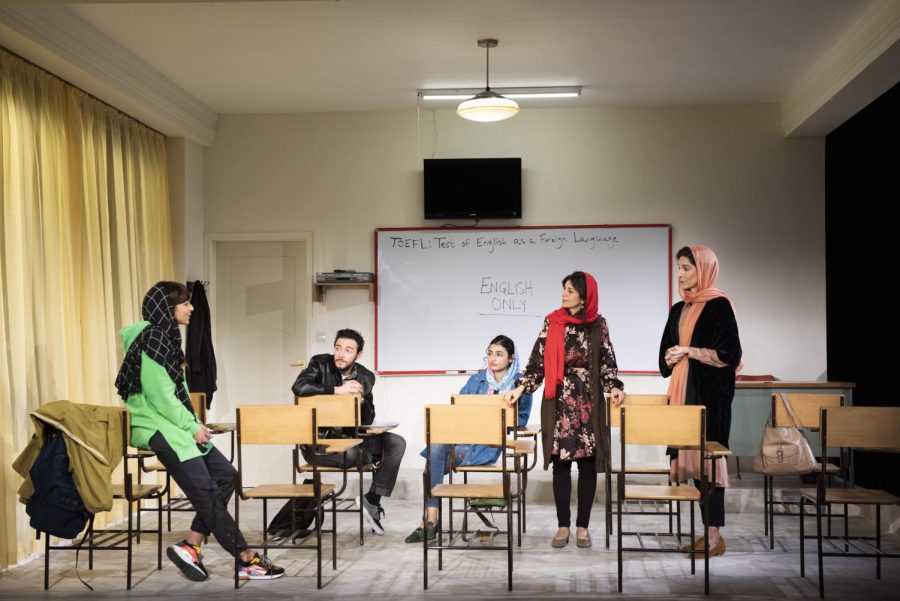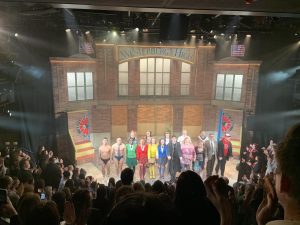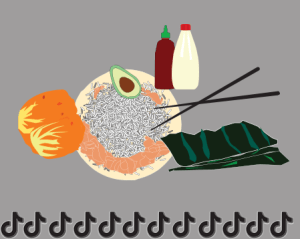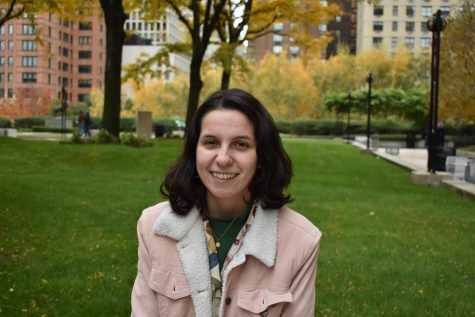‘English’ and ‘Shhhh’ Take Center Stage at Atlantic Theater Company
Atlantic Theater Company’s 2022 Off-Broadway season kicks off with two original female-driven works that are reshaping theater as we know it
COURTESY OF AHRON R. FOSTER
“English” is a powerful and intimate look into a group of people learning English in Iran. The director is known for her comedies on the experiences of Iranian women.
March 7, 2022
Broadway is back, and the off-Broadway Atlantic Theater Company is following right behind it.
Known for producing Broadway-bound productions, like Tony Award-winning musicals “Spring Awakening” and “The Band’s Visit,” Atlantic Theater Company has wasted no time getting stories back onto the stage after the industry took a hit during the pandemic. After its world-premiere musical and most recently announced Broadway transfer “Kimberly Akimbo,” the downtown theater company is starting 2022 strong with two brand-new plays, “Shhhh” by Clare Barron and “English” by Sanaz Toossi.
‘Shhhh’
At Atlantic Stage 2 on West 16th Street, I felt like Alice in Wonderland, immediately transported into uncharted territory as I lost cell service on the escalator ride down into the theater. Without a phone to glue your attention to, it was easy to observe the black balloons scattered on the floor, the funky lights that emulated a nightclub and the obsidian trash bags taped to the walls. Graffiti messages like “SHHHH” were written in blue masking tape.
“Shhhh” positions Barron not only as the playwright but also as the director and leading lady.
When I took my seat — a cushion on the floor — and saw others finding their places on an old mattress on stage, I knew this wouldn’t be your average piece of theater.
Playwright Barron is not new to the theater world. Her most notable work, “Dance Nation,” was a finalist for the 2019 Pulitzer Prize in drama. But “Shhhh” positions her not only as the playwright but also as the director and leading lady.
Known for her experimental work concerning themes of power, desire, relationships, the human body and magic, Barron adds to her repertoire of similar pieces with “Shhhh.” The story revolves around two sisters: Shareen (Barron), a writer suffering from an unknown illness, and Sally (Constance Shulman), a postal worker who makes ASMR videos and conducts rituals in her spare time.
In an undisclosed city that is presumably New York, the play gradually unfolds as the two sisters go out into the world and try to navigate relationships. While Sally flirts with Penny (Janice Amaya), a nonbinary partygoer, at an exhibit displaying an “anatomically correct” Venus goddess encased in glass with organs fully exposed, Shareen overhears two girls talking at a pizza shop and reflects on her own experiences.
As usual, Barron never shies away from the uncomfortable. Many lines in the script hit hard, especially coming from the playwright herself. Early in the show, Shareen tells her sister, “I want to be someone’s pet.”
By the end of the show, she tells her sister, “I am a machine built for other people’s pleasure. I don’t know how or when I became this.” Shareen’s storyline is the center point of the production and feels the most realized out of the rest of the characters.
Barron clearly has important things to share, but I would have been fully immersed if I was more invested in Sally’s character.
Don’t be misguided, however. The heart of this piece lies at a pizza shop, where two young women, Francis (Nina Grollman) and Sandra (Annie Fang), converse. As Shareen listens and gradually sheds silent tears at a table on the side, the two girls — who only appear in this scene — discuss consent and growing up. Trying to wrap her head around a potential sexual assault, Sandra tells Francis about her visit to the Moors, a national park in the United Kingdom, fresh out of high school and grapples with the idea of two different people living inside of her. Grollman and Fang’s performances steal the show and had me longing to watch a play featuring them.
Barron clearly has important things to share, but I would have been fully immersed if I was more invested in Sally’s character. While the sisters had some tender moments together and Sally’s opening ASMR session gave me the chills, I found the character and her recurring date, Penny, to be more lackluster than expected. I was more disappointed with the treatment of Penny’s character since I initially was super excited for a story to feature a nonbinary character.
‘English’
When I took a trip downtown to the Linda Gross Theater, housed in a former church on West 20th Street, I knew this show would be something special.
Already a Critic’s Pick from the New York Times, “English” by Sanaz Toossi puts the emerging playwright on the map. Toossi is quickly becoming known for her comedies focusing on the experiences of Iranian women. In fact, she already has her next project lined up. After this run of “English,” she will be premiering “Wish You Were Here” at Playwrights Horizons in April.
“English” is intimate in all the right ways, thanks to director Knud Adams’ awareness of space.
“English” takes place in Karaj, Iran, in 2008 in an English-learning classroom. Professor Marjan (Marjan Neshat) is determined to speak only English in her six-week program so her four adult students can pass the Test of English as a Foreign Language (TOEFL).
Throughout the show, Marjan and the students participate in exercises typical for a language course — listening to conversations, word association ballgames, show-and-tell presentations and engaging with Western media. The latter leads to two important storylines in the play: Marjan and Omid (Hadi Tabbal) developing a relationship through movie screenings and a discussion about accents triggered by a student’s performance of “Whenever, Wherever” by Shakira. As time progresses, tension stirs.
“English” is intimate in all the right ways, thanks to director Knud Adams’ awareness of space. Set on a rotating set piece depicting a classroom for an English language class, there are moments where the view of the actors is obstructed, but it always feels intentional.
For example, when a part of the wall blocked Marjan’s face as Omid tries to bond with her, it feels natural that I can’t see either person’s facial expressions during this private moment.
The less I knew going in, the more impactful the play was. To put it briefly, Toossi does a wonderful job at blending comedy with hard conversations about identity and assimilation, particularly channeled through Neshat’s stunning performance as Marjan.
“English” will be running through March 20.
















